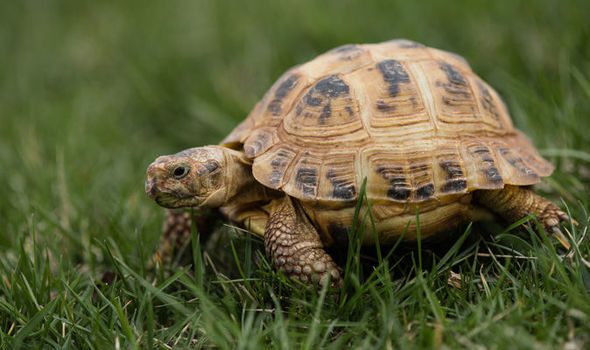Tortoise Care Sheet
General Care
Hibernation is not a definite procedure unless you are planning on breeding. Remember, do not hibernate young tortoises and increase the temp in winter to prevent this from happening. Temperature can differ based on tortoise varieties, but they will require basking lamps.
Tortoises can live up to 80 years old. It is popular to keep tortoises in the garden during summer for short periods, ensuring that it is safe. If you decide to keep your tortoise in the garden, please ensure it has access to a direct heat source.
Feeding
Your tortoise will need to be fed daily. The main species kept in the UK are Hermann’s and Horsfield’s tortoises. Their diet should be low in fat and protein, but high in fibre. Tortoises need to eat leafy greens, fruit, and veg.
This should be the main part of their diet. This being due to the high calcium levels that are in leafy plants. All leafy greens, fruit, and veg should be dusted with calcium dust 2/3 times per week, to ensure they get the required number of vitamins. However, fruit is classed as junk, so it should be only 5% of diet.
Artificial foods such as tortoise food should only be given in a part of the diet. This is due to the food not giving them full nutritional needs. This is ideal for your tortoise in the winter to cover the lack of live plant produce. You can also consult with regards to the type of tortoise about any other food that they might be able to eat.
It’s advisable to have calcium and multivitamin supplements dusted on their food regularly, 3 times a week.
It is important to not give your tortoises cabbage or legumes as these are prone to upset their tummy.
Housing
Tortoises require plenty of space. We recommend a vivarium however, the humidity needs to be monitored as if it gets too high it can cause respiratory problems. When housing your tortoise outside, ensure you have an enclosed space that is free from other animals, children, and predators so your tortoise can roam safely.
In the vivarium, Tortoise Life substrate is recommended.
Tortoises require a minimum of 10% UVB Lighting and sufficient heating. UVB and UVA lighting together help synthesise Vitamin D3.
The outdoor enclosure will need sufficient shade so your tortoise can escape the sun and fresh drinking water is constantly available.
Cleaning:
Every month you should perform a full clean and remove all substrate and hides. To do this, you should use a reptile safe disinfectant to ensure all hides and the table are cleaned safely. You should spot clean your tortoise’s enclosure daily, removing any uneaten food, water, and excrement.
Bathe your tortoise 3-4 times a week for 10-15 minutes in warm water.
Illness:
When tortoises are unwell, they show very little symptoms. We recommend weighing your tortoise regularly to make sure they are gaining weight. Any signs of significant weight loss may be a sign that your tortoise is unwell and should be examined by a vet.
For any further information or advice please feel free to ask a staff member in store or contact the store on 01902 494860




